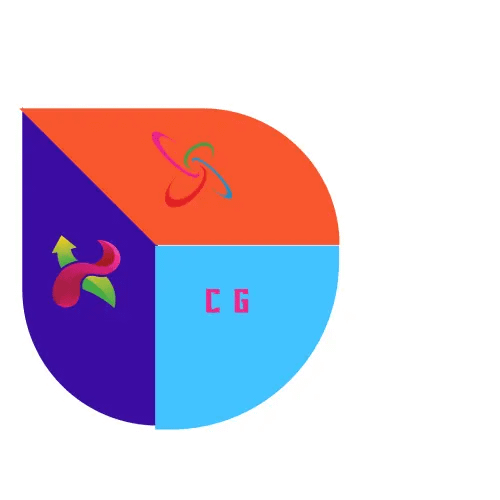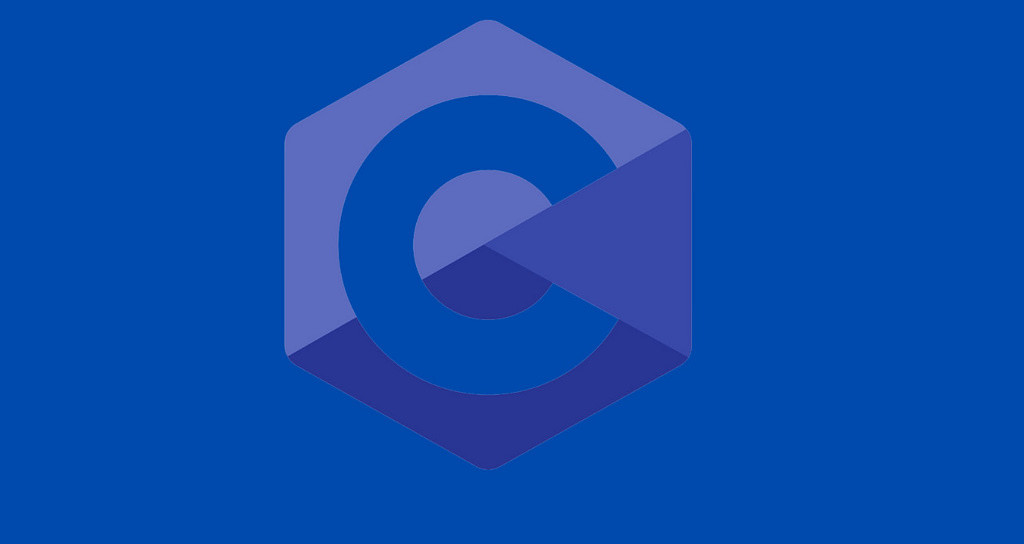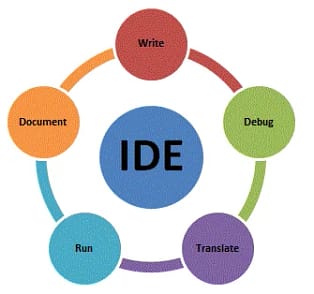Are you a beginner and searching for C programming or wanna know about C programming? No idea why should you learn C language.
I know these questions seem to be very disgusting but you never become a good programmer if you doubt if what you are doing is right. I also faced this thing and tried to give answers to all your questions in a single blog post.
C Programming:
C is a general-purpose, procedural, and structured programming language that was developed in the early 1970s by Dennis Ritchie at Bell Laboratories.
It is widely used for system programming, such as operating systems, compilers, and databases, as well as for application programming, such as games, web servers, and graphical user interfaces.
C is one of the most influential and popular programming languages in the world, as it has influenced many other languages, such as C++, Java, Python, and PHP. You can find similar blogs or if you are looking for the best IDE then click here.
History:
Here are some key points about C programming. C Programming has passed through different stages to become such developed as now it is.
- 1969-70: Ken Thompson, a colleague of Ritchie, created the B programming language, which was a simplified version of the CPL (Combined Programming Language) and was used to write the first version of the UNIX operating system.
- 1971-73: Ritchie improved and extended the B language, adding data types, operators, and control structures, and named it C, as it was the successor of B. He also rewrote the UNIX operating system in C, demonstrating its portability and efficiency.
- 1978: Ritchie and Brian Kernighan published the first edition of “The C Programming Language”, also known as K&R, which became the de facto standard for the language.
- 1983: The American National Standards Institute (ANSI) formed a committee to standardize the C language, resulting in the ANSI C or C89 standard.
- 1989: The International Organization for Standardization (ISO) adopted the ANSI C standard, with some minor modifications, as the ISO C or C90 standard.
- 1999: The ISO released a new version of the C standard, known as C99, which added new features, such as variable-length arrays, complex numbers, and designated initializers.
- 2011: The ISO published another revision of the C standard, known as C11, which introduced new features, such as atomic operations, threads, and static assertions.
- 2018: The ISO published the latest version of the C standard, known as C18, which mainly fixed some defects and inconsistencies in the previous versions.

Key Features:
Some of the important features of C are:
- It is a low-level language that allows direct access to memory and hardware resources.
- It is a portable language that can run on different platforms and architectures with minimal changes.
- It is a fast and efficient language that produces compact and optimized code.
- It is a simple and clean language that has a small and consistent set of keywords and operators.
- It is a flexible and powerful language that supports structured programming, recursion, pointers, arrays, functions, and macros.
Uses of C Programming:
C is a versatile and powerful language that can be used for various applications, such as:
- Creating and maintaining IoT applications: IoT, or the Internet of Things, refers to the network of physical devices, sensors, and software that communicate and exchange data. C is a popular choice for developing IoT applications because it is low-level, fast, and portable. For example, C is used to program Arduino boards, which are widely used for IoT projects.
- Developing compilers: A compiler is a program that translates source code written in one language into executable code in another language. C is often used to develop compilers because it is close to the hardware and can produce efficient code. For example, GCC, or the GNU Compiler Collection, is a set of compilers for various languages, such as C, C++, Java, and Fortran, that are written in C.
- Developing operating systems: An operating system is software that manages the hardware and software resources of a computer. C is a common language for developing operating systems because it allows direct access to memory and hardware resources. For example, UNIX, Linux, Windows, and MacOS are some of the operating systems that are partly or wholly written in C.
- Developing and building databases: A database is a collection of data that is organized and stored for easy access and manipulation. C is a suitable language for developing and building databases because it is fast, reliable, and scalable. For example, MySQL, PostgreSQL, and MongoDB are some of the databases that are written in C.
- Developing Internet browsers and their extensions: An Internet browser is a software that allows users to access and view web pages on the Internet. C is a useful language for developing internet browsers and their extensions because it is portable, modular, and compatible with various web standards. For example, Mozilla Firefox, Google Chrome, and Safari are some of the internet browsers that are written in C or C++.
These are some of the important uses of C programming. C is a widely used and influential language that has many applications in various domains.
Why is C Programming best for beginners?
There are many reasons why C programming is a good choice for beginners who want to learn how to code. Here are some of them:
- C is a simple and clean language that has a small and consistent set of keywords and operators. This makes it easy to understand and write code in C.
- C is a low-level language that allows direct access to memory and hardware resources. This helps you to learn how computers work and how to optimize your code for performance and efficiency.
- C is a portable language that can run on different platforms and architectures with minimal changes. This gives you the flexibility to work on various projects and systems using C.
- C is a fast and efficient language that produces compact and optimized code. This makes C suitable for applications that require speed and reliability, such as operating systems, compilers, and databases.
- C is a flexible and powerful language that supports structured programming, recursion, pointers, arrays, functions, and macros. This gives you the ability to create complex and dynamic programs using C.
- C is the basis for many other popular programming languages, such as C++, Java, Python, and PHP. Learning C will help you to understand the syntax and concepts of these languages and make it easier to learn them.
FAQS
Here are some FAQS about the C programming Language
Q1: Why should I learn C programming?
Learning C provides a strong foundation for understanding programming concepts. It’s used in many industries, including system development, game development, and embedded systems. C also serves as a precursor to many other programming languages.
Q2: What is the difference between C programming and Python?
Python is a high-level, interpreted language known for its readability and simplicity, suitable for rapid development.
C is a low-level, compiled language, offering greater control over hardware, but with more complex syntax. Python emphasizes ease of use and versatility, while C prioritizes efficiency and direct hardware manipulation
. Python is dynamically typed, while C is statically typed. Overall, Python is favored for its ease of learning and diverse applications, while C is chosen for system-level programming and performance-critical tasks.
Q3: Why did we choose C programming as the beginning of our programming career?
C programming is a great choice for beginners because it teaches you the fundamental concepts and skills of programming, such as variables, data types, loops, functions, and pointers.
C also gives you a low-level understanding of how computers work, such as memory allocation and manipulation.
C is a widely used and influential language that has shaped many other languages, such as C++, Java, and Python.
Learning C can help you transition to these languages more easily. C is also a fast and efficient language that is used for system programming, application development, and embedded systems.
Q4: What are famous things developed using C programming?
C programming is a versatile and powerful language that has been used to develop many famous and influential things, such as:
- Operating systems: C is the core language for creating operating systems, such as Windows, Linux, macOS, and Android. C allows low-level access to hardware and memory, which is essential for system programming.
- Software applications: C is also widely used for developing software applications, such as web browsers, databases, games, and graphics. Some examples are Mozilla Firefox, MySQL, Doom, and Photoshop.
- Programming languages: C has influenced many other programming languages, such as C++, Java, Python, and Go. C is often used to implement compilers and interpreters for these languages, as well as libraries and frameworks.
- Embedded systems: C is the preferred language for developing embedded systems, such as microcontrollers, sensors, and devices. C is suitable for embedded programming because it is fast, efficient, and portable.
Which IDE did we choose for C programming?
There are many IDE that would be found in Marjet for this purpose. We also have written a blog on this topic that you can also read. Click here to read that blog. But if in short you do not want to read the blog and want just to know about the IDE then I will recommend Visual Studio. I explained all the features of different IDE on that blog. You can also read to check out those thongs. But you can download it from here.
Conclusion:
C programming is a fundamental skill for any programmer who wants to understand the inner workings of computers and create efficient and powerful applications. C is a simple, clean, and portable language that offers low-level access to memory and hardware resources.
C is also a flexible and versatile language that supports structured programming, recursion, pointers, arrays, functions, and macros.
C has influenced many other popular programming languages, such as C++, Java, Python, and PHP. Learning C will help you master the concepts and syntax of these languages and make you a better programmer.
In this blog, we have covered the basics of C programming, such as its history, features, uses, and key points. We hope you have enjoyed reading this blog and found it useful and interesting. Thank you for your attention and happy coding!



